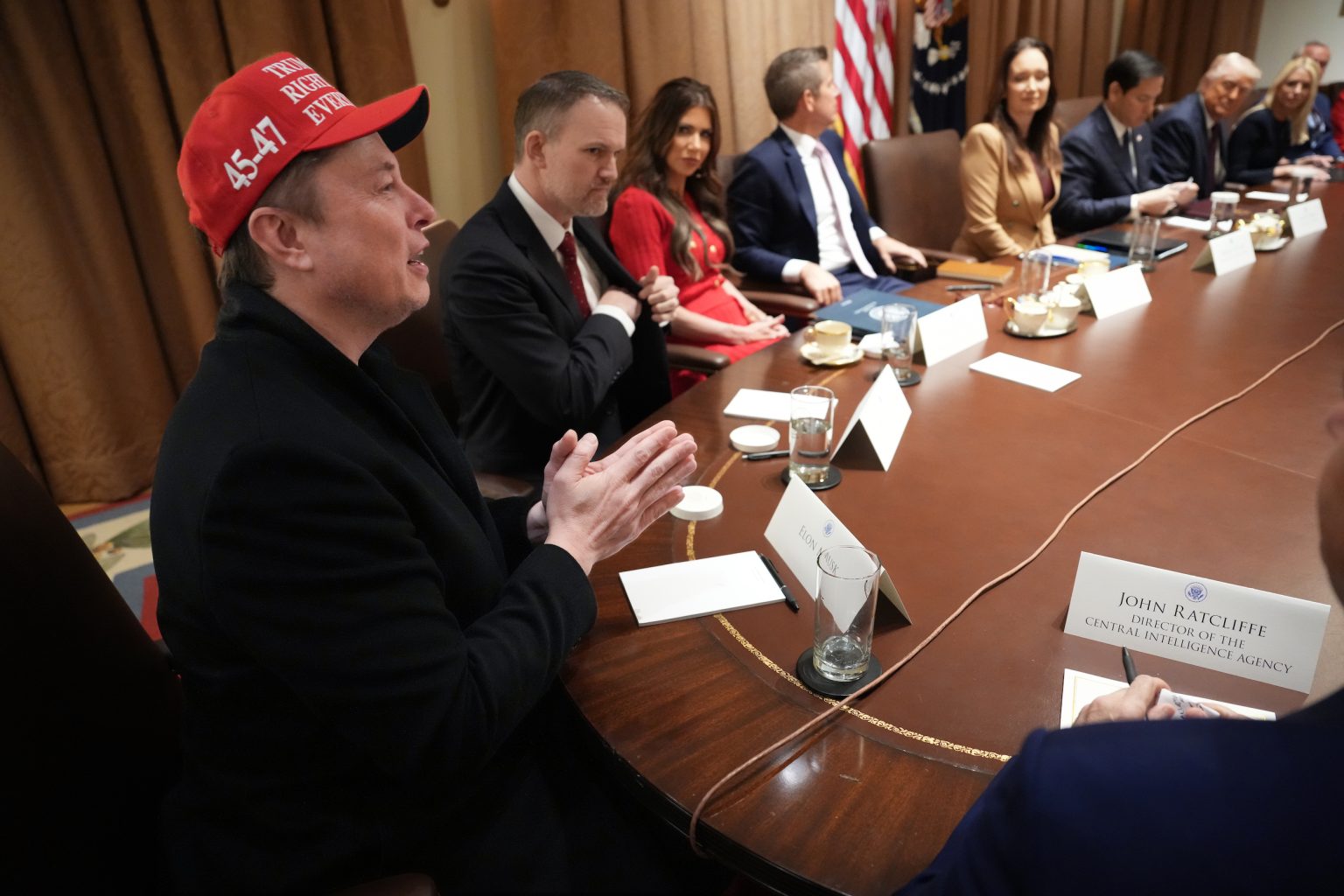Summarize this content to 2000 words in 6 paragraphs Elon Musk and the Department of Government Efficiency (DOGE) are doing incredible, badly needed work to cut out waste and modernize our bloated federal government. Overhauling the inefficient bureaucracy and taking a hard look at costly contracts and over-staffed departments is not just necessary—it’s a matter of national survival. The federal government, with its millions of employees, has ballooned into an unmanageable monstrosity, consuming trillions of taxpayer dollars while failing at even the most basic functions. Musk’s efforts to streamline this mess are long overdue, and the resistance DOGE is encountering only proves how desperately reform is needed.Unsurprisingly, Democrats have reacted with apocalyptic rage, screaming about “authoritarianism” and “dismantling democracy” while ignoring how much the federal government already operates like an unaccountable leviathan. Many of these agencies, like the Pentagon, are so inefficient they can’t even pass a basic financial audit. Yet, when Musk and DOGE attempt to hold these agencies accountable, the Left loses its collective mind.There is, however, one aspect of DOGE that the American people should be wary of that few are talking about: its impassioned deployment of artificial intelligence (AI) to take the reins of the federal government.While AI can certainly be an efficient tool for time-consuming research or menial tasks, the prospect of AI making decisions that affect national policy or individual lives should concern every freedom-loving American. Allowing AI to take over critical roles currently filled by living, breathing Americans would be a blow to our democracy and republic.To be fair, the Trump administration has not signaled it is planning to sweepingly replace the federal government’s functions with AI. But once Pandora’s box is opened, it’s difficult to shut. DOGE is reportedly using AI to analyze responses it received from Musk’s email asking federal employees to list the work tasks they had accomplished in the past week. The plan is to use a “Large Language Model,” as it’s called, to process mountains of human text and then determine whether someone’s job is “mission critical” or not. This is an unprecedented step—one that has the potential to revolutionize government accountability, but also one that could be misused in ways we can’t yet predict.Musk’s team is also reportedly working on an AI-powered “chatbot” for the General Services Administration, which manages the details of federal office buildings and contracts, among other tasks.
WASHINGTON, DC – MARCH 24: White House Senior Advisor, Tesla and SpaceX CEO Elon Musk (L) speaks during a cabinet meeting held by U.S. President Donald Trump at the White House on March 24, 2025…
WASHINGTON, DC – MARCH 24: White House Senior Advisor, Tesla and SpaceX CEO Elon Musk (L) speaks during a cabinet meeting held by U.S. President Donald Trump at the White House on March 24, 2025 in Washington, DC.
More
Win McNamee/Getty Images
It’s one thing for AI to quickly and efficiently pull key data out of a lengthy contract for a human being to diligently analyze. It’s another for AI to determine whether someone’s job is “mission critical.” How does AI define “critical?” By what parameters? And who is programming it? If AI can make those kinds of important executive judgement calls, what else might it soon be asked to do?Some may say that AI’s neutral, efficiency-first approach is just what the government needs. But AI is rarely, if ever, politically neutral. ChatGPT’s language model became notoriously Left-leaning and “woke” in how it analyzed and responded to human requests. Ask an AI chatbot to define “misinformation” or “racism,” and you’re likely to get answers pulled straight from the radical Left’s playbook. A recent study from Brown University revealed how AI tools can easily be manipulated into favoring one political ideology over another.
We’ve already seen bureaucrats weaponize the government to subtly go after their political opponents. The IRS targeted conservative groups, the FBI spied on the Trump 2016 campaign, and intelligence agencies manipulated social media narratives to influence elections. Wait until these powers are in the hands of an inanimate AI programmed to disfavor or even target conservatives through the vast powers of the federal government. If a human bureaucrat violates your rights, there is a precedented legal path for recourse. What happens when an AI-controlled algorithm flags your tax filings, denies you a business loan, or determines that your social media posts violate some ambiguous “community standards”—all without a human being involved? That recourse is far less clear.It’s undeniable—and perhaps unpreventable—that we are on a trajectory to have at least some roles normally filled by humans taken on by AI. This isn’t necessarily a bad thing. The emerging technology is already bringing sweeping changes across the private sector. Vice President JD Vance recently declared that “global AI dominance” must be a goal of the United States. Given that China is aggressively developing AI with the explicit goal of surpassing the U.S. both economically and militarily, we don’t have the luxury of falling behind.The private sector may go through an AI revolution, but as citizens, we alone are responsible for safeguarding and keeping watch over our republic. For nearly 250 years, we have had a government of, by, and for the people, electing leaders who in turn appoint public servants to manage that government’s day-to-day responsibilities. If we allow AI to replace human oversight, we are voluntarily surrendering control over our nation to a system that has no accountability, no moral compass, and no obligation toward the people it governs. Efficiency is important—but not at the cost of our sovereignty and freedom.Jeff Dornik is a free speech activist, host of the Jeff Dornik Show, and the CEO of Pickax.The views expressed in this article are the writer’s own.








